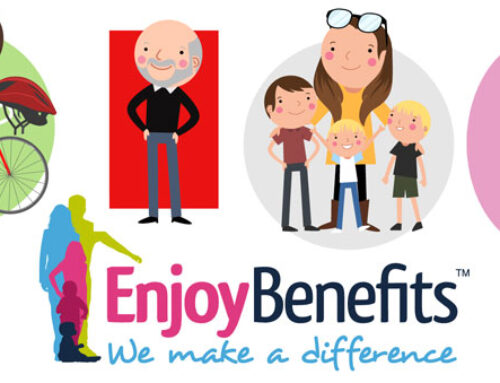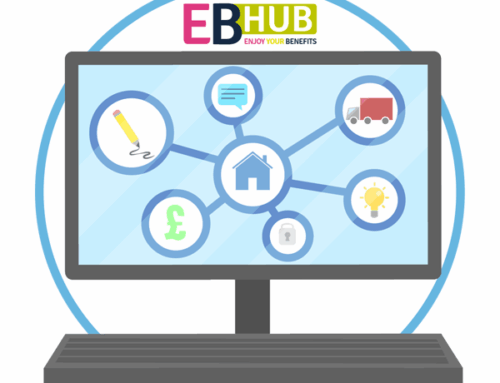Life changed a lot in 2020 and through the first part of 202 and this was certainly true for the workplace.
Some businesses and organisations might return to normality of sorts, employees commuting to work on a daily basis once more. However, for many other organisations and roles remote working is likely here to stay, whether full time or at least for a large portion of the week.
Workplace benefits therefore have to change too if they are to reflect the fact that many employees might continue to be home-based.
How does this change what they need, how does it change what might entice quality new recruits or encourage existing employees to stay? How can the benefits just show that as a business or organisation you care about the workforce and want to make life that bit easier for them.
A new challenge as well is how can a sense of team continue to exist when people are constantly working remotely, how can the job be more than simply work and Zoom calls.
As workplace benefit experts, we can work with you to solve these challenges and create a suite of benefits suited to the new reality
In this post, though, we are also going to look at what others believe is now important in the field of workplace benefits.
For more information on the ideas below, please head over to a fascinating post on the Forbes site.
Create a Sense of Team
If people aren’t getting together as a team at the workplace, how can this be recreated.
This also has to be more than just a team in terms of working on projects, how can there be a fun or sociable team aspect?
Challenges could be created, if a discounted gym membership scheme is offered, how can there be a sense of challenge relating to distance run, or sessions attended without this simply rewarding the fittest members of the workforce.
This sense of team can also be meals out or outings – not necessarily ‘team building’ sessions where you have to make a raft, but just a fun day out to a sport event, theatre or any other social event. It could even just be a picnic out in the park.
On a more regular basis, there could be virtual coffee breaks – scheduled times when people are encouraged to make a break and then dip in for a chat should they so wish.
The key is to create a sense of unity but for this to be without agenda. It isn’t to discuss work or to encourage joined-up working, it is to serve that basic human need for interaction.
Enable Personal Development
Working from home can feel like a never-ending routine of working, doing the occasional chore at home, taking care of the kids or pets, and then replying to emails and doing more work.
Where does personal development fit in, what is the opportunity for training?
Employees need to have the ability to develop as well as to simply carry out their existing work. Perhaps this need has been lost a bit at times during the past year, when so much focus has been on how we can work from home, rather than how we can also develop while at home.
A first step is to let people know that there will be a renewed focus on personal development, after that the process will vary by employer. Some will be able to use mentors, others might outsource training or use remote learning courses.
Development can also be allowing people to have more autonomy and control over their work and projects.
It is also worth considering how training can be as a group – if we are trying to address isolation then it makes sense to not further play into that isolation by encouraging remote, impersonal online training courses whereby the participant simply watches pre-recorded videos.
Support for the Family
In an office or other workplace it is easy to forget about our families (in the nicest possible way). At home, this is not the case and even if the kids are entertained for now, there can be a sense of guilt that we are sat there working, when we could be playing with them.
Employers more than ever need to demonstrate that they realise how hard this balance can be and so ensure that all messaging reflects this.
Benefits such as family health insurance can be introduced, so too the Holiday Exchange Scheme – this enabling people to buy or sell a week’s holiday, making it easier to juggle caring commitments.
This ethos can also extend to flexible working where possible – an attitude that if the work gets done it often doesn’t matter too much when it is done.
Those at the top of an organisation can also show that they too know these difficulties, perhaps dropping in the odd amusing anecdote about their own struggles balancing work with homelife.
This is a key point we often make – the ethos matters as much as the benefits themselves.
Surprise Gifts
Many people will have worked in places where there are occasional gifts or little surprises. These are often not anything huge or expensive, but they are always appreciated.
Some cakes for the office is a perfect example.
This can be recreated for those working remotely – imagine the delight any employee will feel if there is a knock at the door and, rather than being a DHL delivery driver with a parcel for next door – it is a gift of sweets from the company.
Support Mental Health
It is difficult enough for many to raise issues relating to mental health when they are seeing colleagues in person – imagine how hard it may be to do so remotely.
Often, in the office, these are conversations that happen just because the moment feels right – maybe at the end of a meeting when everyone else has left, or in the kitchen. When does it feel right in a Zoom call, when is the right time to send an email?
It is an obvious truth that mental health matters, nothing matters more. Employers can do so much to help by setting up a scheme such as the Employee Assistance Programme – this offers expert, confidential advice and access to advisors and councillors on a huge range of issues.
The service gives people an outlet, they can discuss mental health challenges or specific problems and concerns.
Setting up this sort of programme demonstrates that the organisation cares for its workforce.
Start a Conversation
Workplace benefits are so often top-down, in that someone in an organisation draws up a list of benefits and then works on implementing them.
Often these only appeal to a small subsection of employees and there are also often glaring gaps.
It is far better to find out what employees would actually find useful.
This conversation can be a difficult one to facilitate, if you ask most people what workplace benefits they would like added they will probably draw a blank. It isn’t typically a subject they spend huge time agonising over.
However, a specialist workplace provision expert can work with an organisation to find out which benefits would be the best match.
About Us
At Enjoy Benefits, we have great experience in helping companies of all sizes introduce benefits that are suitable for their workplace.
Benefits are easy to set up and ongoing administration is then run through a hub, this allowing employees to manage their own benefits while the employer can see which benefits are proving popular and what level of take-up each has had.
If you would like an obligation free chat to discuss which benefits might work for your business and your employees, please contact us by calling 0800 088 7315 or using our Contact Form.





